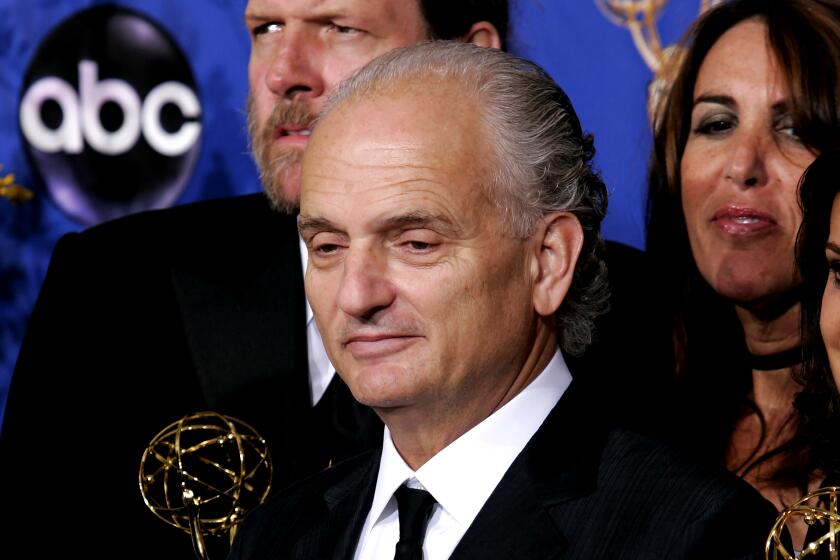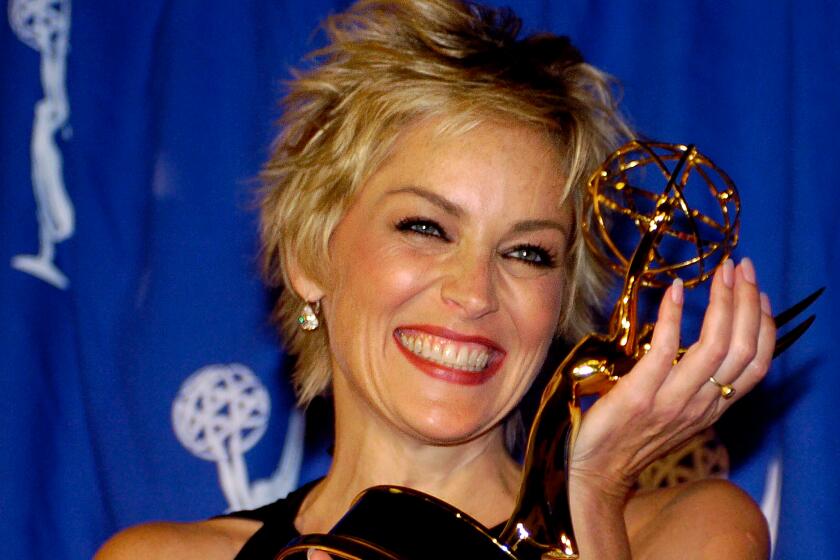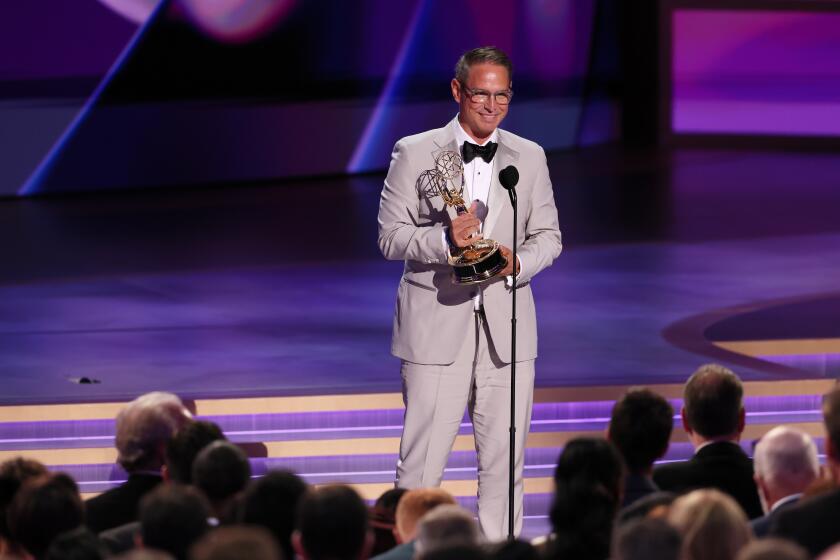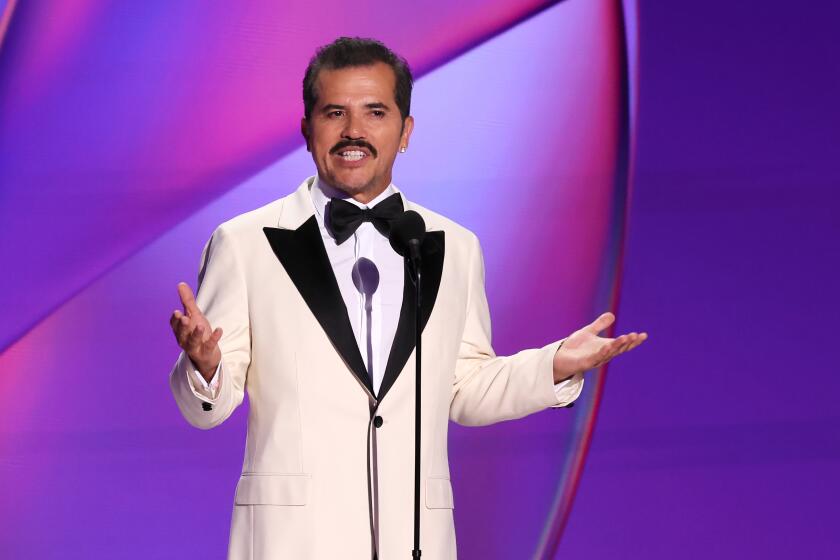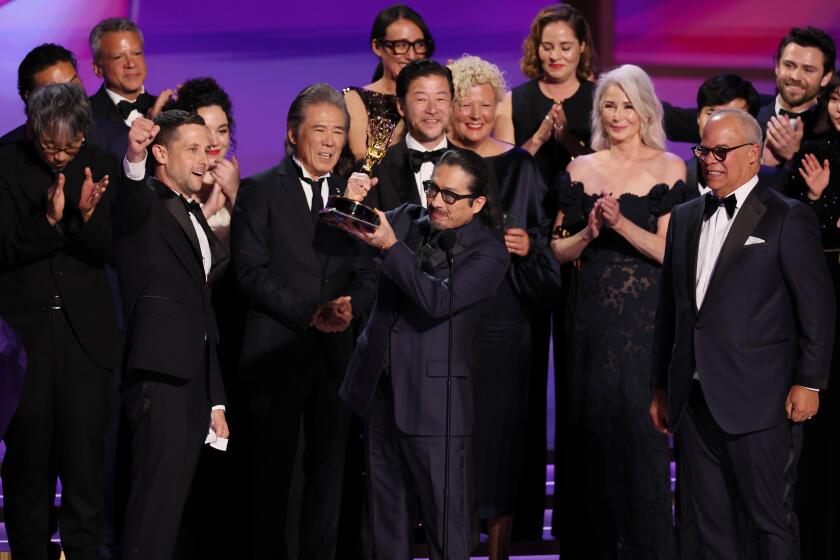20 years ago at the Emmys: A clean sweep for ‘Angels in America’
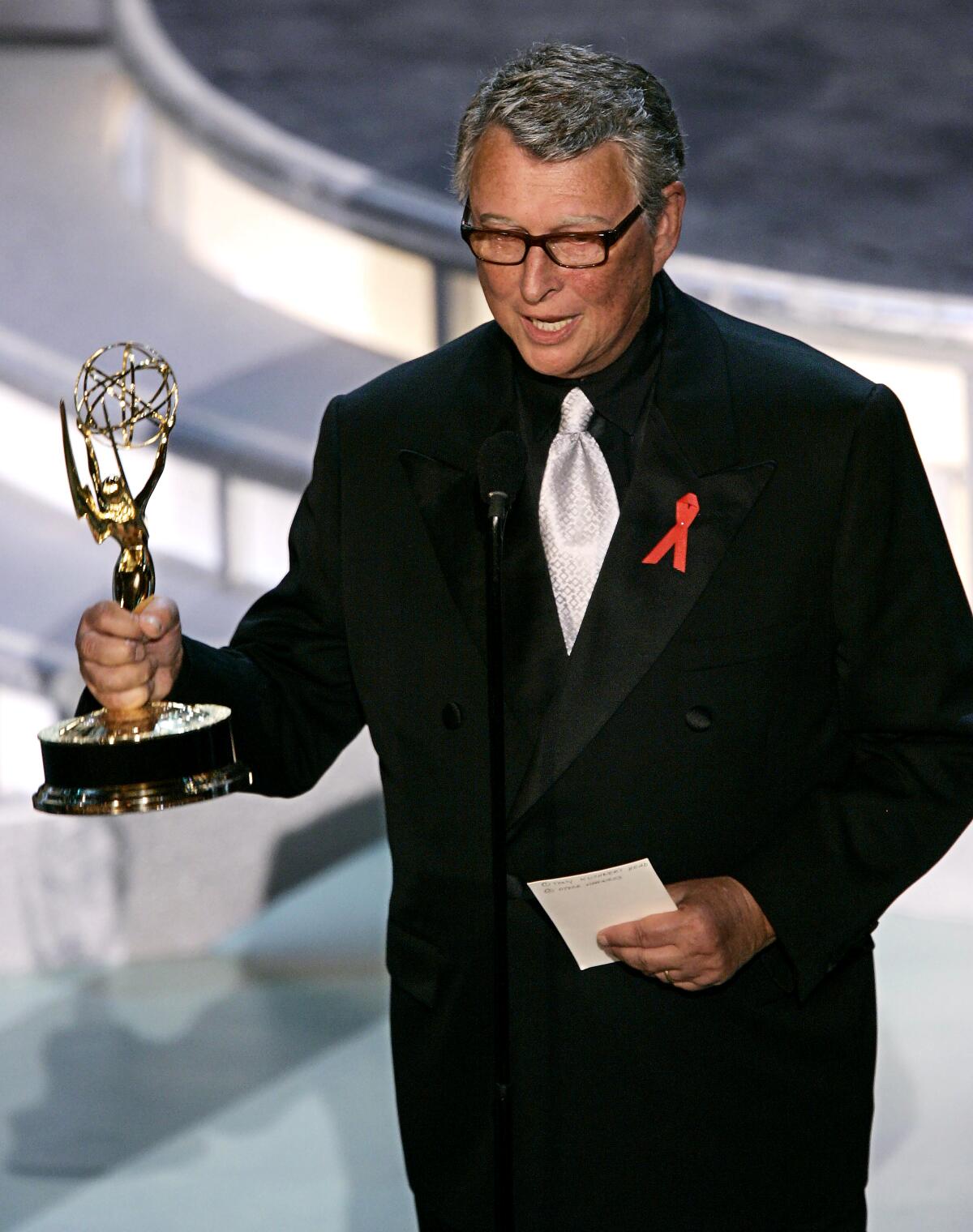
There’s no such thing as a sure thing in awards season — but HBO’s “Angels in America,” which swept the 56th Primetime Emmy Awards on Sept. 19, 2004, at the Shrine Auditorium in Los Angeles, sure came close.
The miniseries came with every pedigree possible: Tony Kushner writing the script based on his Tony-winning play; director/executive producer Mike Nichols; and stars Meryl Streep, Al Pacino, Mary-Louise Parker and Jeffrey Wright — all of whom won that evening. “Angels” was the most-watched made-for-cable series in 2003, and it gave dramatic voice to the AIDS epidemic in a way no other TV project had before.
An ‘Angelic’ evening
And so, “Angels” had an angelic evening at the Emmys, beating the record “Roots” had held since 1977 for the most Emmys given to a miniseries in a single year (11 awards from 21 nominations). It became the first program to sweep every major category in which it was eligible, and became only the second series to that point to win all four main acting miniseries categories.
Broadcast TV still ruled the nominations 20 years back, but original cable programming was making its move toward dominance.
Today, there is no longer simply a miniseries category; over the decades, the “more than a single-episode fictional scripted show” label has evolved. Today, the category is for limited or anthology series.
“Angels” overcame solid competition from “American Family” (Season 1) on PBS; “Horatio Hornblower” on A&E; “Prime Suspect 6: The Last Witness” on PBS; and “Traffic” on USA.
Continuing the fight against AIDS
Nichols accepted the award from presenter Barbara Walters and promptly handed it over to Kushner, who joined him onstage along with many members of the cast and his fellow producers. After thanking HBO executives and his fellow producers (executive producer Cary Brokaw; co-EP Mike Haley and producer Celia D. Costas also were winners), Nichols added, “As you know, the fight against AIDS isn’t over yet and we must do what we can for Africa, and that is what we want to leave you as far as ‘Angels in America’ is concerned. Let’s see what we can do.”
This was Nichols’ fourth Emmy; he’d won for directing earlier in the evening, and his other two came in 2001 for “Wit,” on which he also worked with Brokaw and Haley. This was Brokaw’s second Emmy (his first came for “Wit”); and Haley’s and Costas’ first wins. Costas would go on to win a second in 2005 for “Warm Springs.”
Pioneers of heart surgery get their beat
The choice as to who would win in the television movie category was less predictable, but “Something the Lord Made” (also from HBO) earned awards for executive producers Robert W. Cort, Eric Hetzel and David Madden and producers Michael Drake and Julian Krainin.
The guest actor and actress category awards are handed out separately from the Primetime Emmy awards. Here’s who won 20 years ago.
The film about the pioneers of heart surgery brought a second Emmy to Cort (who had won in 1990 for “A Mother’s Courage: The Mary Thomas Story”); and first wins for Hetzel, Madden, Drake and Krainin (Krainin had an Oscar from 1974 for documentary short with “Princeton: A Search for Answers”).
After accepting the award from presenters Kiefer Sutherland and Joely Richardson, Cort spoke for the producers and gave a shoutout to the film’s nominated director, Joe Sargent, who was in the audience and already had four Emmys for projects spanning from 1973 to 1992. Cort noted that Sargent’s “courageous heart infuses every frame of our film.”
“Something the Lord Made” also took home awards for cinematography in a miniseries and single-camera picture editing for a miniseries, but no acting wins for nominated stars Yasiin Bey (Mos Def) and Alan Rickman.
“Something” was in competition with “Ike: Countdown to D-Day” (A&E); “And Starring Pancho Villa as Himself” (HBO); “The Lion in Winter” (Showtime); and “The Reagans” (Showtime).
More to Read
From the Oscars to the Emmys.
Get the Envelope newsletter for exclusive awards season coverage, behind-the-scenes stories from the Envelope podcast and columnist Glenn Whipp’s must-read analysis.
You may occasionally receive promotional content from the Los Angeles Times.
